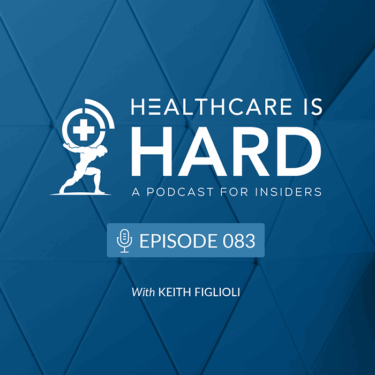
Dr. Mark McClellan has served as a Member of the President’s Council of Economic Advisors, Administrator of the Centers for Medicare & Medicaid Services (CMS), and Commissioner of the U.S. Food and Drug Administration (FDA). But his experiences before, and accomplishments following these leadership roles at the highest levels of government health policy are equally important to his perspective on the healthcare ecosystem – especially during a time of rapid policy change.
Dr. McClellan always intended on pursuing a medical degree and entered a joint Harvard-MIT program that took him in a slightly different direction. He ended up studying economics and the rising cost of healthcare at MIT. He ultimately earned a medical degree from the Harvard-MIT Division of Health Sciences and Technology, a Ph.D. in economics from MIT, and a master’s in public administration from Harvard’s Kennedy School.
Dr. McClellan began his career at the Treasury Department in the Clinton Administration, and returned to public service under the George W. Bush Administration where he led the FDA and CMS. Today, Dr. McClellan is the Robert J. Margolis, M.D., Professor of Business, Medicine and Policy at Duke University and the founding Director of the Duke-Margolis Institute for Health Policy. His work centers on improving health care through policy and research, with a focus on payment reforms, quality, value, and biomedical innovation.
With his expertise in medicine, economics and public policy, Dr. McClellan talked to Keith Figlioli in this episode of Healthcare is Hard to share his perspective on adapting to rapid change in the current healthcare landscape. Topics they discussed include:
- Misalignment of innovation and outcomes. While advancements in digital health are coming to market faster than ever before, Dr. McClellan says there’s still a lack of technology truly centered on keeping patients healthy. He says traditional payment methods make it hard to support this type of innovation. For example, advancements in AI are helping physicians gather information for prior authorization requests, and ambient scribing saves time with note taking and administration. But these technologies essentially help providers see more fee-for-service patients or bill for more profitable services. He argues that more outcome-oriented payments are needed to advance technology-embedded care models.
- The evolution of value-based care. After Congress passed the Medicare Modernization Act in 2003 to establish Medicare Advantage, Dr. McClellan became administrator of CMS at the President’s request to lead its implementation. With unique insight from leading some of the earliest VBC programs, he shared his thoughts on the speed of adoption and why it hasn’t happened faster. He discussed how early MA models needed to be based on existing fee-for-service infrastructure, his surprise that not much has changed, and his optimism that it’s finally starting to.
- Mobilizing private capital for public health. Private investment will be essential to support the significant changes required to improve healthcare – especially with uncertainties around future levels of government funding. Dr. McClellan explained how the Duke-Margolis Capital Impact Council (CIC) was launched to guide and improve the role of private investment in healthcare. He described how members of the council are developing and sharing practices for investors and their portfolio companies to track health value return on investment alongside financial ROI.
To hear Dr. McClellan and Keith discuss these topics and more, listen to this episode of Healthcare is Hard: A Podcast for Insiders.
